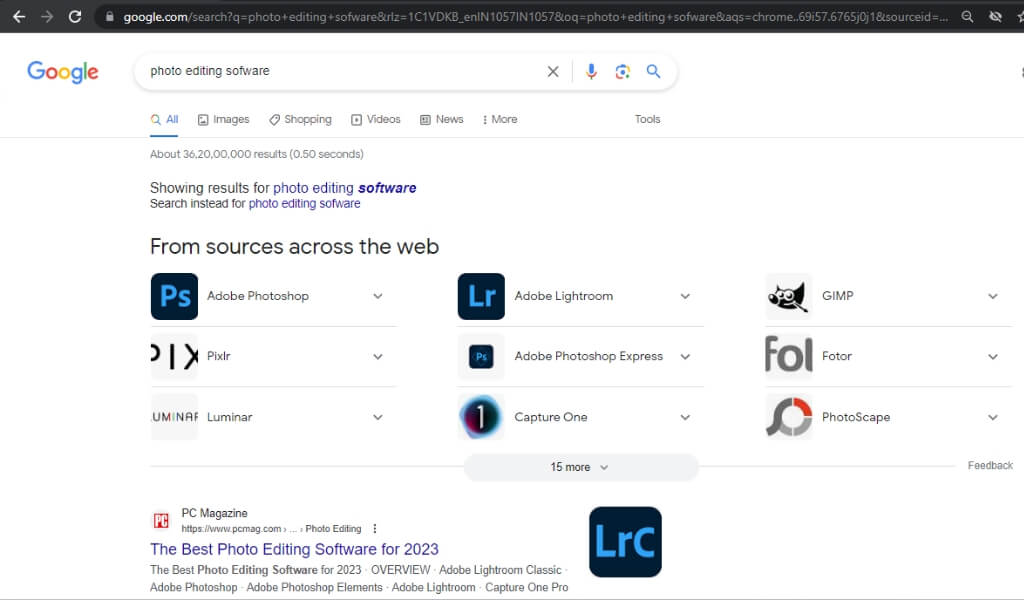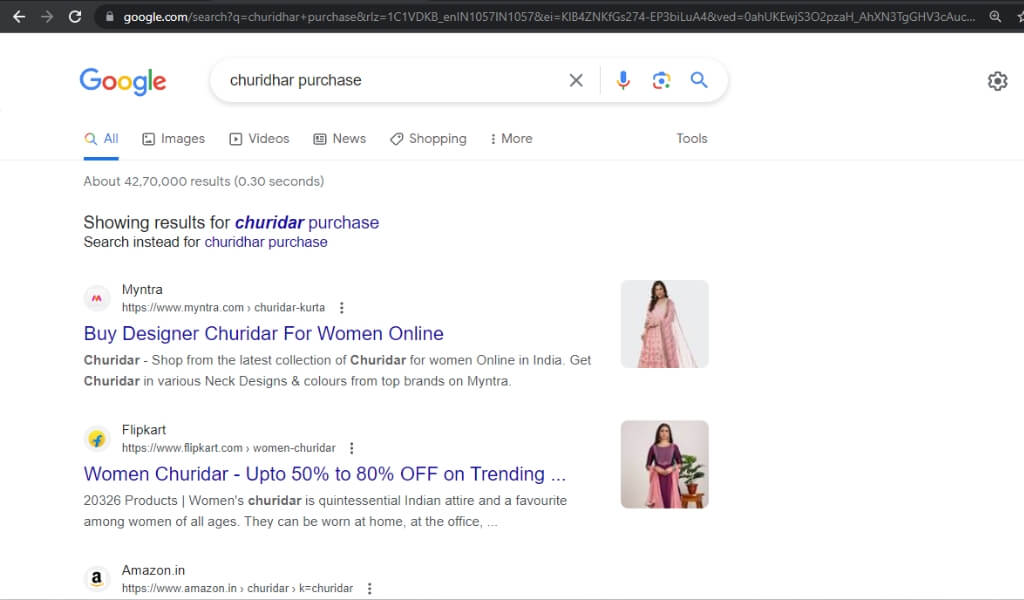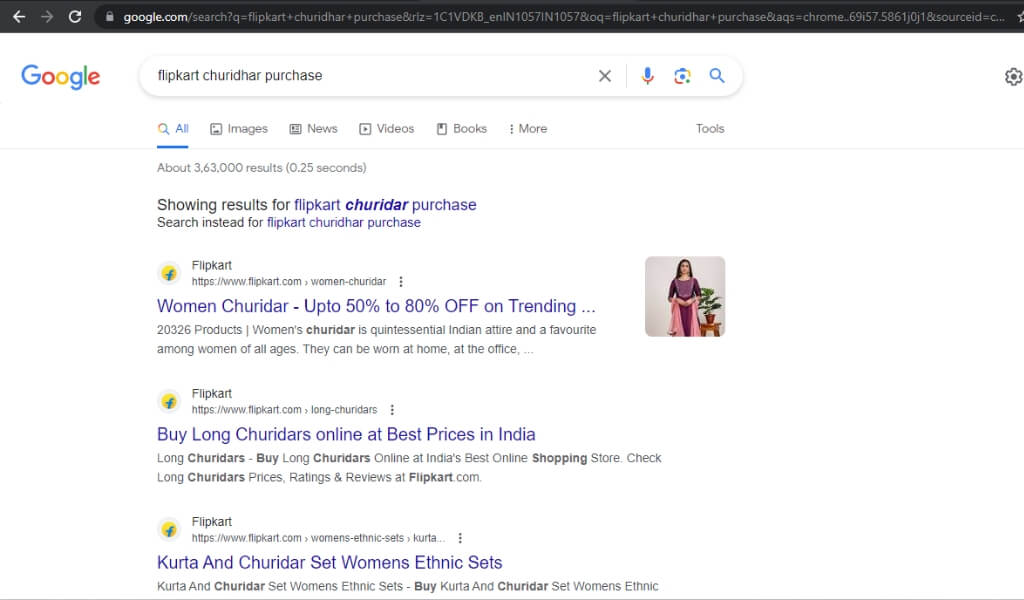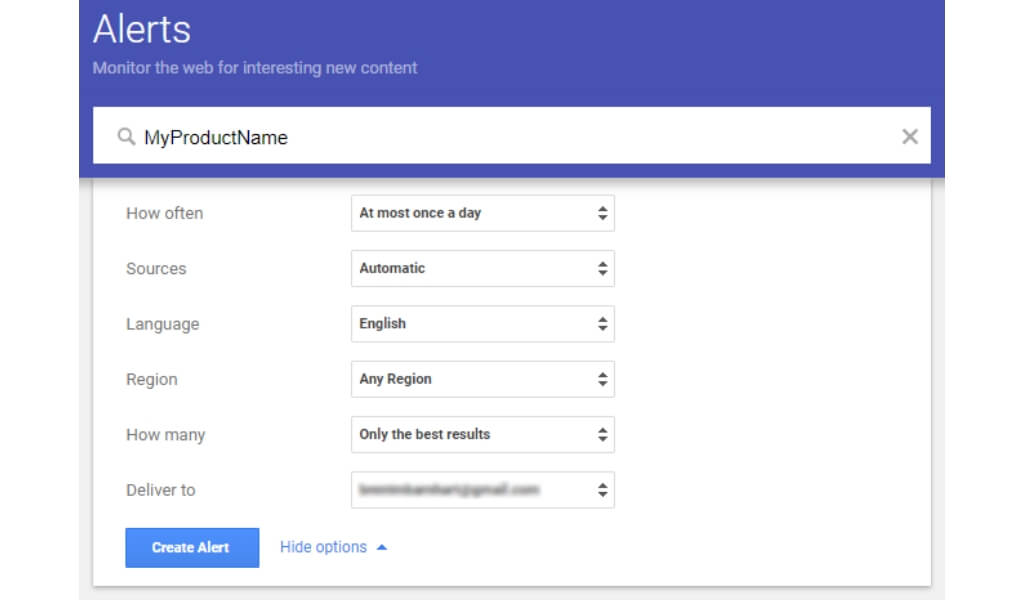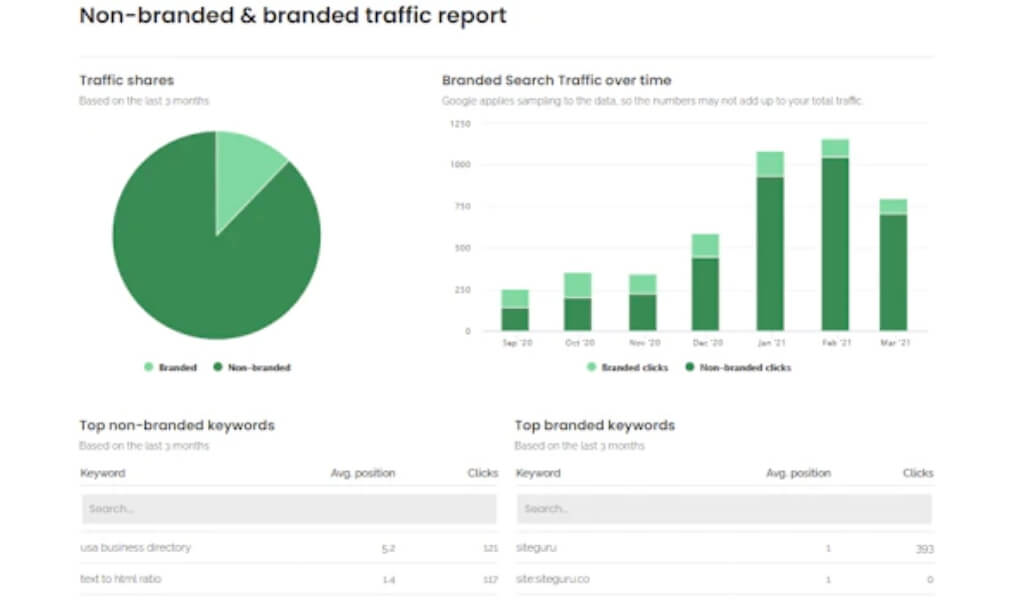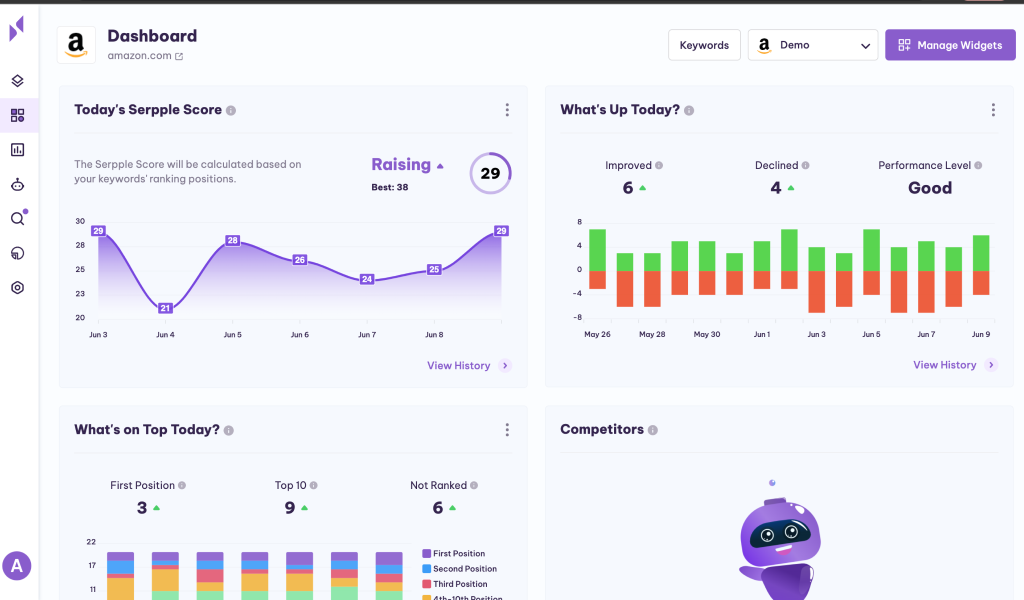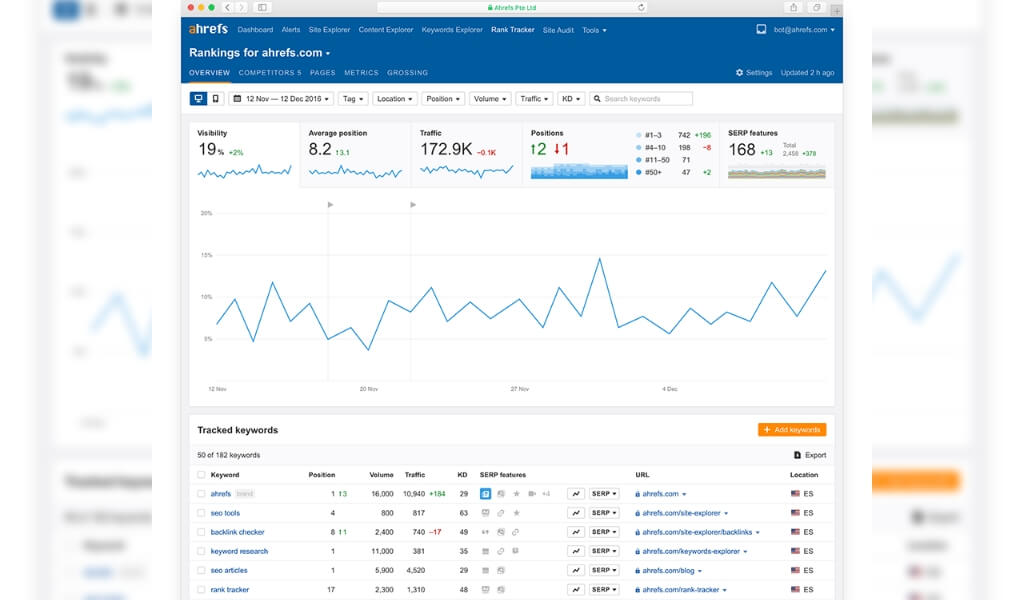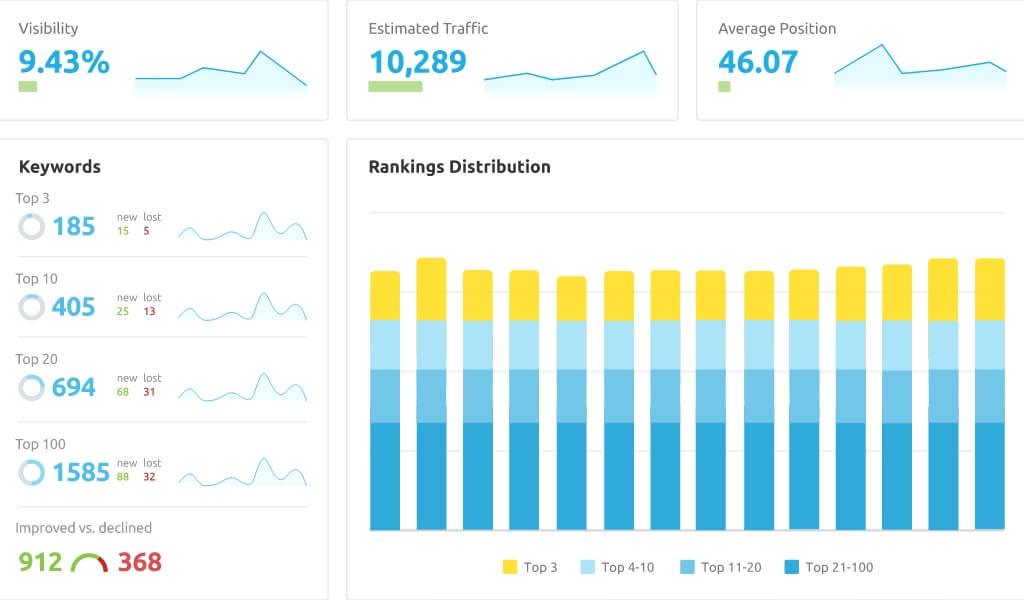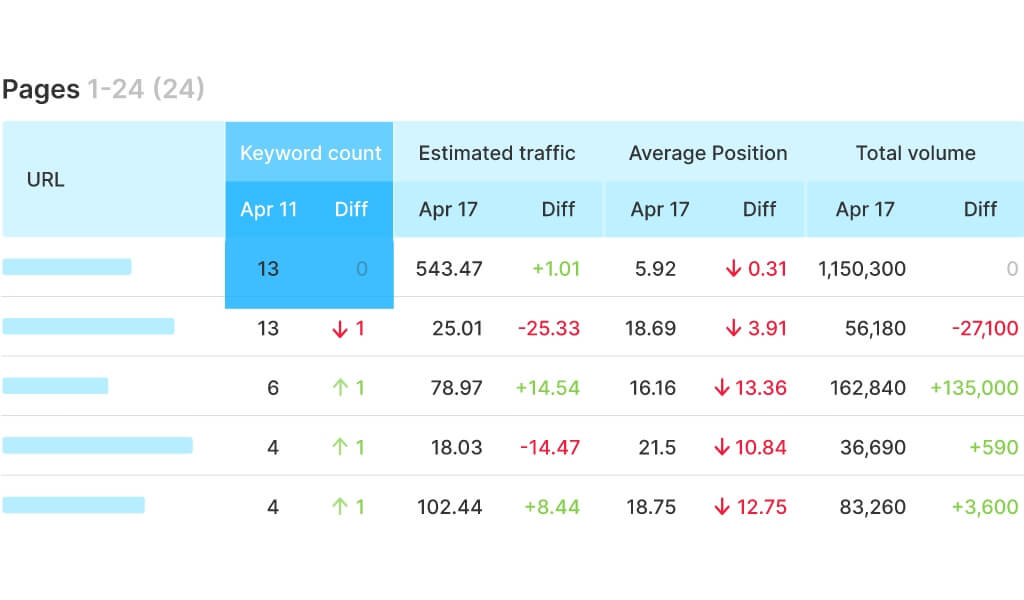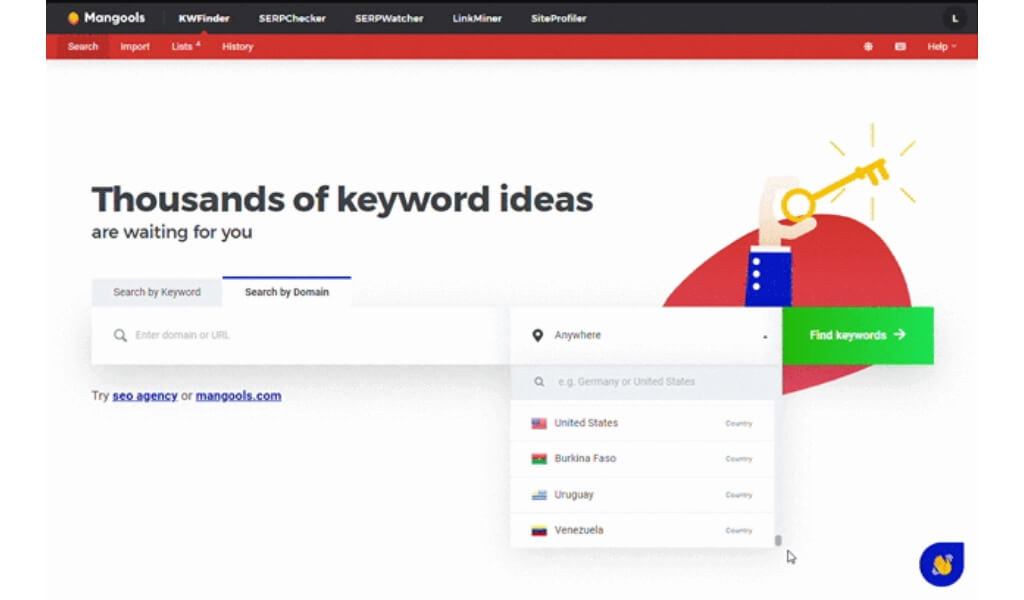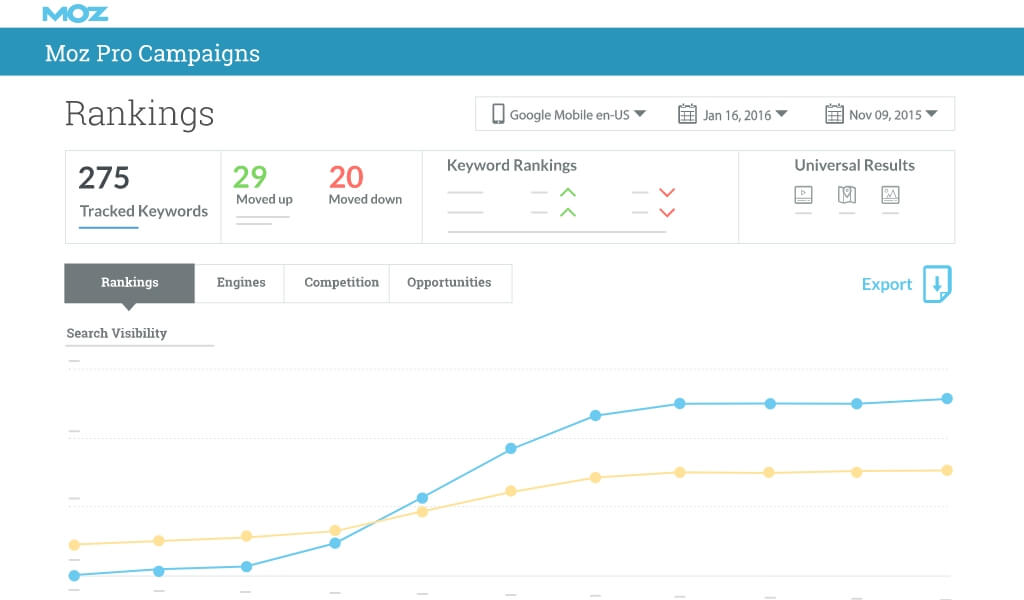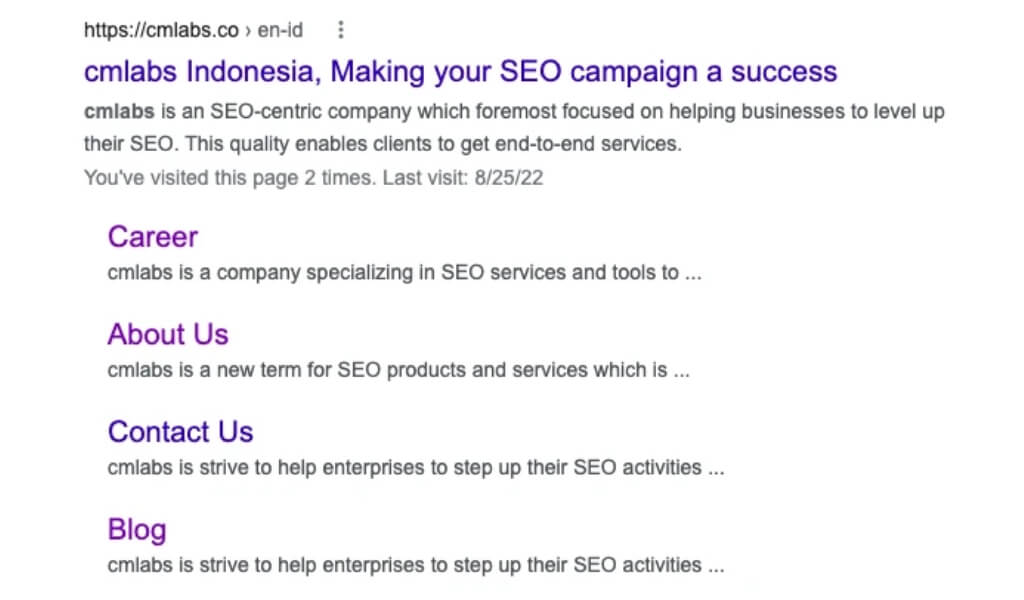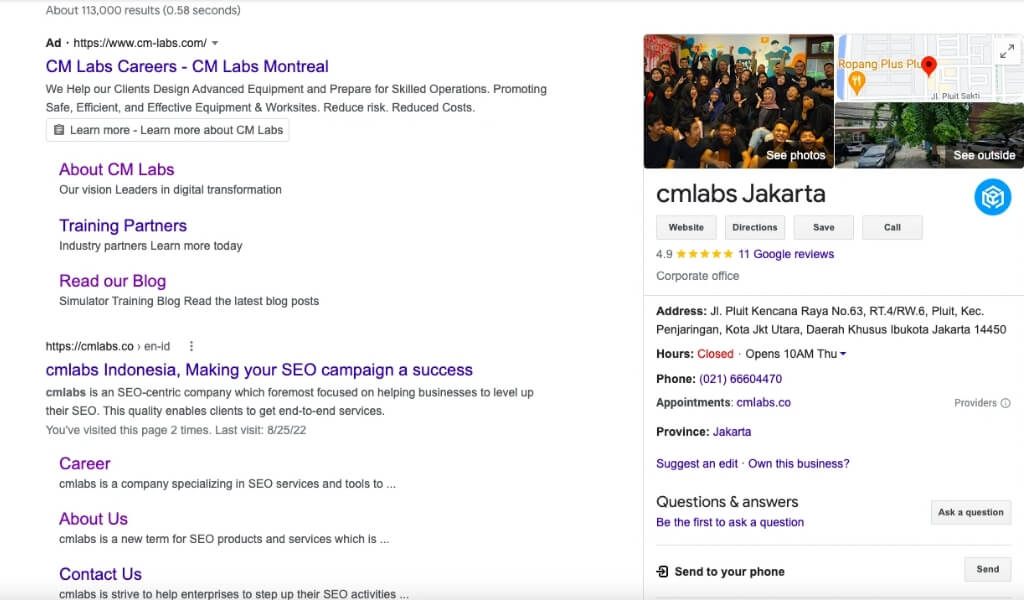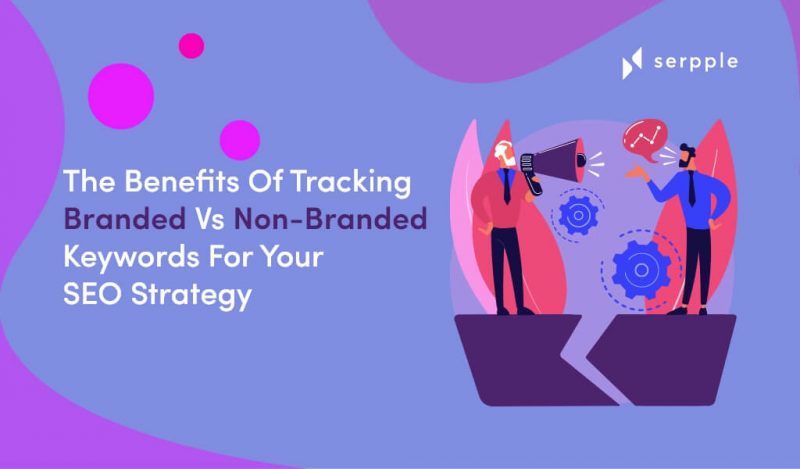
The Benefits Of Tracking Branded vs Non Branded Keywords For Your SEO Strategy
Sweetha
Posted on June 13, 2023
Introduction
When we arrive at Search engine Optimization, and its branding, basically two kinds of search terms prevail, branding keywords and non-branded keywords.
These search terms are more significant for the digital marketing strategy of a firm, and can indirectly enhance the website’s visibility within search engines. Hence these keywords ought to gain proper attention and a systematic approach to focus on.
Most of the firms concentrate more on non-branded keywords, taking the efforts of other counterparts for granted, neglecting branded search and brand name in SEO.
This results in struggling in owning search terms, associated with brand names, and acquiring losses in their organic traffic, with payment from customers as well.
Why Does this Happen?
The reason to have an imbalance on to give focus on branded vs non-branded keywords is due to misunderstanding of the purpose it serves in SEO, the benefits it gains for organic site ranking, and how it differs from one another.
Read on the below section, to learn about the all to get aware of the two keywords and how your firm could gain benefits for website optimization, to improve the rank traffic and search volume as an SEO strategy.
Importance of Keywords in SEO
The keywords in SEO are word defining your content, about what is the theme your content deals with. These are merely the words, that the searchers use to arrive to your website through search engines.
An optimized website, having relevant keywords, acquires knowledge about what kinds of keywords visitors use as input, in order to direct them to your website.
The keyword stands as a major source, to see the link of your website, appearing in the SERP of Search engines. Hence, you must to how site visitor searches out the services and product, which your website had to provide them.
It is more recommendable in enlisting a few keywords, appropriate and associate to the provided site content, in order to yield maximum organic web traffic and focus to achieve high-level SEO.
Google and some search engines consist of around 200 ranking-factor, which could either make your website in some position with limited visibility or will traverse the website on SERP’s first page.
Anyway, one must know about the importance of keywords in this scenario, in playing a prominent role to promote the ranking of the website and how it can do optimization for yielding a high rank in Google traffic.
Source: Google
Further to get clear about the significance, there are five essential reasons you must take to delineate why the keywords considered in seeking attention in SEO, which are stated below
- Keywords maximize conversion.
- Keywords could be recycled.
- Keywords aid in building your business.
- Keywords drive out more traffic to your website
- Keywords let different search engines know what is there all about your website.
The keywords search assists to analyze and assess what frequent keywords are being searched by visitors, how this searching happens, and in accordance with this, pose suitable decision.
But also, it seems more difficult in scoring a high rank upon SERP, more patience, and hard work for this hence you must get to know about the benefits of keywords, how they contributed to website traffic, and in efforts to move the site on top of SERP.
What is a Branded Keyword?
A branded Keyword defines keywords, inclusive of the brand name. This characteristic, turns the keyword to be exclusive towards the brand, making the potential customers, easier to determine their targeted information about the firms and appropriate content to it.
The branded keywords, are the ones, directly associated with the brand service or product of the brand. For instance, Apple is a branded keyword, which consists of the brand name Apple, denoting it.
The keyword “iPhone”, is considered a branded keyword, since it is a brand product, that is exclusive denoting the company.
Definition and examples of branded keywords
With no surprise, the most general kinds of branded keywords were the brand names literally, such as depicted below. These are the branded keywords example
- “Google”
- “Sprout Social”
- “Patagonia”
You should mind the differences between branded and non-branded keywords.
For instance, if someone, states “Sprout Social” within a tweet, denotes the former one, whilst a few tagging the @SproutSocial account or else mentioning the #SproutSocial hashtag, represents the latter one.
Product names (product lines)
Here in this section, we are talking about mentioning of particular product lines or products, tied to specific brands.
For example
- “Pixel 4a”
- “Frappuccino”
- “Impossible Burger”
In some cases, the product-associated keywords maybe also been coupled with major brand names, as in “Amazon Alexa”
- “Apple Watch”
- “Google Watch”
- “Echo Dot”
- “Niki Shoes”
- “Hyundai Cars”
These branded keywords comprise the product name or the company name itself. And also, long-tail keywords were also highly specific. For instance, “Nike Running Shoes, for the marathons”, “Hyundai Cars Mileage” or “Latest Apple iPhone”.
What is a Non-branded Keyword?
Non-branded keywords represent search terms, are inputted by customers, and denote the prospects, looking for some information associated with your firm or company, but not actively doing a search for the company itself.
In case of some examples, like “Tea shop near me” in the search engine, “closed Tea shops to me”, “best restaurant in Raleigh”, “Coffee shops with wi-fi” would all contribute as the non-branded keywords, as all the aggregates become the entire inbound, “non-brand organic-search” traffic stream.
Definition and Examples of Non-branded keywords
These non-branded keywords are the keywords, that were highly relevant to our brand, products, and company, however, it does not consist of the name of the brand.
For instance, for non-branded keywords example let us take that you are having and executing a related blog on SEO having a website name “Bloggers Passion”.
In this case, Bloggers passion represents the name of the brand, wherein the keywords such as “Keyword research services”, “digital marketing”, “SEO” etc., were the non-branded keywords, which does not contain your respective brand name, however, it becomes more relevant to the corresponding website.
Non-branded keywords actually does not include the name of the brand and represent the most associated terms to your brand name or website.
Let’s take an example of a non-branded keyword.
As illustrated in the above screenshot, when the “Photo editing software” keyword term is entered into the search engine, Google shows instantly the featured snippets, consisting of all the top editing S/W tools such as
- Adobe Photoshop
- CorelDraw
- Polarr
- GIMP and so on.
The non-branded keywords, aim to target more non-branded keywords, is that you will gain more exposure for different highly associated terms although the company or brand is not been included within that.
How do Non-branded and Branded Keywords Does Work Together?
One of the prominent goals of SEO must be to improvise your search volume of branded keywords.
Why is the need to improvise this?
When you view the increasing search volume for your branded keywords, you can very clearly see the development of your business.
Otherside, if the relevant terms of the brand name, were also searched by more search user density, then also it hits the search volume level. This is the ultimate power of utilizing both non-branded keywords and branded keywords as well.
You think of non-branded and branded keywords like this below.
Branded keywords – enhance the rate of conversion and sales as well.
Non-branded keywords – develop brand awareness and maximizes visibility of the website.
Non-branded keywords is a peculiar approach to reach out new customers. People who are all using this non-branded keyword, keep searching for services that were sold and brand products, probably the company haven’t heard of prior.
Non-branded keywords in SEO support expanding the brand name, simultaneously generating new sales as well.
Another side, branded keywords possess the highest sales rate and conversion rates.
People who determine your website, through branded search terms, have high intentions to buy the product particularly from you.
This makes them as high value. However, the non-branded keywords, were valuable only if the people know the existence of the business.
Hence you ought to determine a better balance between targeting these two keywords. Like how branded keywords, increases the rate of conversion and non-branded keywords, maximize the awareness and visibility of a website.
You need to find a good balance between targeting:
The keyword strategy thus, maximize significantly the search traffic for your website, whilst enhancing the sales rate and conversion rate as well.
Identifying When to Utilize Branded Keywords and Non-branded Keywords
Utilizing the branded keywords, thriving anchor text for the website, offers a rapid way to enhance the SEO ranking of your website for those particular keywords. In order to improvise the ranking of the website, through keywords, use branded keywords.
Similarly, if you have the intention to grab the attention of new visitors, and a promising focus towards your content marketing strategy, utilize non-branded keywords.
The new visitors who were in search of information for those keywords get directed to the website, through these non-branded keywords.
Employ a mix of non-branded and branded keywords in paid search campaigns. If the focus to reach more volume of people, who were both have an interest in services or brands through non-branded and branded searches you can use both sorts of keywords.
Nevertheless, analyzing when to use non-branded and branded keywords, should gain importance part for PPC strategy and should be assumed in the goal context.
Branded Keywords Usage
As branded keywords, a robust strategy, herein are the different purposes behind using these branded keywords.
Increase in Conversion rate with spending low cost
Branded traffic, seems to be typically lesser in comparison to non-branded traffic since it targets a very narrow audience, however, it is a good thing also.
For the people, who intend to do advertising to the user, who were searching for your products or services already maximize the likelihood to get a conversion as they do searching for the product already, exclusively for your brand only, and looks to have purchased as well.
Source: Google
In addition to this, branded keywords cost only a fraction of price of leading those non-branded keywords-terms. It comes with low cost-per-click (CPC) whilst being more associated with the intended audience, potentially turning out ROI important.
Source: Google
Through executing bidding and brand campaigns, on the branded keywords, you would be showcasing your brand while targeting a more appropriate audience. Hence essentially through targeting bottom-funnel prospects, you will be gaining more ranking through spending less cost.
Time to use Non-Branded Keywords
Non-branded keywords maximize brand awareness and increase site visibility that aids in generating new leads.
Consumers posing non-branded search keywords were highly likely as persons doing general searches or individuals doing new prospects searches who may be not familiar with the brand name.
For any company, there may be a requirement to boost the discoverability for their reputation and sales, in this situation they start to establish the brand trust and come forward to win new customers. In this situation, they opt for unbranded keywords.
These keywords possess more search volume than branded keywords. In order to rank the website, as the top priority, it finds the relevant terms for non-branded keywords, for the business strategies.
When the business entirely depends on only on the brand name, for driving organic traffic, then it opens up more opportunities.
However the branded traffic could be limited, hence to reach out to more new audiences, non-branded keywords be optimized with research intent and commercial intent content, at every stage.
The non-branded keywords are trusted more, wherein the business identifies what the potential customers will do search for, and how their site pages can be optimized, and content preparation in accordance with these non-branded keywords
Benefits of Branded and Non- Branded keywords
Branded keywords terms referred to have a high rate of conversion for their website, turning out valuable parameters for your company.
The non-branded-keywords contribute to search engine optimization strategy in the following ways, listed below
- Aids in tracking search query trends and brand popularity promoting the sales rate.
- Assists in establishing brand awareness in all the search results in search engines.
- Reach out to more audiences.
- Improve Organic website traffic
- Helps in the comparison of brand performance and their corresponding competitors with contrast differences as well.
Non-branded keywords, the normal SEO keywords, form the base of the SEO campaign.
Non-branded keywords in accordance with value and intent must be valuable to company you are running, and keyword intent must match what it is attempting to accomplish it.
It yields the benefits of increasing visibility, developing their business in search outcomes, and reaching out to new customers to your website.
Limitations of Branded and Non-branded Keywords
A common drawback to using branded keywords is that it seems to be high expensive to upkeep with those PPC campaigns.
At certain times, user intention could cause individuals who simply surf for any information related to your website or company in clicking on the advertisement, however, does not indulge to have any transactional action.
Similar to this, branded keywords also has some limitation. Utilizing branded keywords considers that sufficient people know the awareness of the company for brand searching with a specific keyword.
You ought to be more confident that the users of the internet do searching your brand with few specific keywords to yield viable outcomes.
There are a few drawbacks to use non-branded keywords as well.
The large, arguably, drawback of utilizing this non-branded keyword is that it does not pull out direct traffic, like the way that branded keywords do in SEO.
If you have a target on the keyword “Sneakers”, different counts of search outputs could come up, for this, as different companies also have rankings for this keyword term.
This actually means your website page might get low traffic only, if it does not have a good ranking.
Other drawbacks to using non-branded keywords are they also seem to acquire expensive in different PPC ads, specifically if that keyword seems competitive.
That is why, it will be more significant and necessary to do monitoring the PPC campaigns and to ensure they met your goals. Otherwise, it may burn the costs.
Distinction Between Branded and Non-branded Keywords
Branded keyword, is the keyword-terms, that consist of name of brand in it, or a different brand name of it.
If the users, like to have search for that particular keyword, moreover associating with the brand name, then that specific branded keyword might get pop up, inclusive of your website, social media accounts, or products.
Non-branded keywords, another side, were the keywords, associated with your brand name, but it does not have the name of brand inside it, more related to it only.
This would be
- Services that your company provides
- Products sold by the company
- topics, your firm has expertise and authority in it.
Non-branded keywords do not name the brand directly, rather it still drives out non-branded traffic to the website, if the keywords are used properly and with strategy.
Differentiating Between the Two in Search Intent and User Behavior
The truth lying behind this brand name and non-branded keywords was crucial for every PPC and SEO campaign. It exhibits different search intent and could target customers at different purchasing process stages.
To illustrate this, it seems possible for searching brand-named and non-branded keywords within the marketing campaigns, through Google keyword-planner.
To explain, we will have a look at the Google search outcomes for one unbranded keyword – “running shoes” and another trademarked keyword – “Skora running-shoes”.
By this example, these keywords have different effectiveness with regards to the conversion rates, competition cost, and website visibility as well.
Visibility: Non-branded
If you need to grab many new customers, ensure that your targeted keywords, make sure you target keywords that many people are searching for.
As a leading search engine optimization company we explain that using keywords with a significant search volume will increase the number of people who will view your ads (assuming that your offer is sufficient to show for the keywords you are targeting).
If we look at the monthly average searches for these terms, advertising that advertises “running shoes” could potentially have a greater reach of 100,000 as compared to “Skora running shoes”.
Therefore, if your primary objectives are to increase visibility in results from search engines, increase brand awareness, and bring more visitors to your website, non-branded keywords are the ideal choice to achieve these objectives.
Competition: Branded
The count of advertisers placing bidding upon the keyword within the keyword planner determines the level of competition. If the terms are more competitive, then there will be more difficulty in placing the ads upon them.
The keywords which were not branded, are highly competitive since they are not exclusive to single specific businesses. Hundreds of firms were looking for the promotion of services or products similar to what has been provided. But also the ideal name of a brand must be unique.
However, the competitors would do advertising on the branded keywords for grabbing the attention of individuals, searching directly on your brands. This happens typically in extremely competitive fields, and you ought to get aware of it since you develop the strategy of PPC.
Cost: Branded
Because of lacking in the competition level on branded keywords, the CPC of brand-name keywords tends to be low. If only limited advertisers keep on bidding on the item, the advertising cost could be less than the price of cents.
The major concern, according to PPC, is to stay within the budget also, and hence branded keywords could be on the list at the top level for advertising with very low CPC.
Conversions: Branded
The primary aim of the marketing efforts lies in maximizing the sales and revenue for the business. This actually means you ought to select keywords having significant conversions.
In the PPC case, ads that are branded keywords generally provide high rates of conversions in comparison to ads not branded.
Hence if you pose separate campaigns, for some branded and non-branded keywords, outcomes were likely exhibited as superior for branded ads.
It is also critical in keeping in mind, that branded keywords tend as highly advanced in the process of purchasing.
They have probably done detailed research on the choices and do visiting of your website, using their past searchers. Similarly, they are more familiar with the products and services which you offer.
Thus, although the branded advertisement may be the final impression, prior to the stage in business conversion, the business might discover using non-branded search as the first and foremost step.
The branding campaign’s success rate seems not impacted by this, even though it is capable of people’s conversion. However, in most cases, the conversions are the plan outcomes inclusive of non-branded and branded keywords also.
Purpose of Tracking Branded and Non-branded Keywords
It is highly significant to track non-branded and branded keywords, and organic traffic more accurately, since it provides a sense of better technical SEO and content are performing.
What are the factors that have an impact on these keywords, with competitors’ statistics, were revealed in keyword tracking results?
After all, the primary goal of SEO content and technical SEO is in enhancing the ranking of Search results, and to raise the organic branded traffic of a website or product.
It is not alone in specifically gaining traction with customers but it also improvises the visit of new customers search volume.
There are more and more factors, that led to a decrease or increase in organic traffic, and through the branded and non-branded keywords tracking results, you will be capable to pinpoint the cause behind it.
In this picture, Tracking of both the keywords, stands essential towards website performance, both in SERP and on-page.
Different SERP notification ranking tool, for each phase, such as keyword research to rank tracking statistics, could support the process easier and rapid.
It ultimately assists you to concentrate on improvisation area efforts, which might definitely increase the web traffic.
Tracking Branded Keywords
There are broadly three ways for tracking the branded keywords
Set a system of notifications upon Google Alerts. This Google Alert is a free tool, which monitors the web mentions. Google emailed you with information while there were mentions of branded keywords.
Analyzing those mentions could monitor
the opinions of consumers related to how they think about the company and their related products.
You perform the same for your own SEO competition also. Those alerts exhibited as valuable to compile topics for blogs and to fine-tune the strategy of content creation.
Another advantage is to test branded keywords prior to incorporating them into the content. The Google search console aids in measuring performance and search traffic by tracking out the keywords.
Tracking of Non-branded Keywords
Now you are on board with non-branded keywords. It’s good.
Depending upon the size and approach, towards online presence, you shall have to track the non-branded keywords for your business.
The different categories of non-branded keywords also stated below, to get tracked for successful new user conversion and rise up organic non-branded traffic.
Events: Are your company services or any products, in any approach related to any sort of event? Perhaps if your business is a brand selling out niche foods or any halal foods, then food fairs or any food festivals may be an appropriate place for monitoring.
The people, posting related to these events, were likely considered as qualified audience, projected as information sources and leads. The searches associated with this audience and their keywords inputs must be tracked.
Employees: As the current business trends, rely on offering the companies a unique human touch.
You identify the employees and owners, in different key positions, who were influential to build out a brand reputation as effective product quality. Those names could turn synonymous, with brand, thus you must not ignore them.
Peripheral Keywords: The customers were inclined towards social media, and sought out any sort of advice, and recommendations on experience on brand, or products.
Those conversations do not need to feature a particular brand or product name, however, it depicts more about the behaviors of customers.
Hence the customer expectation queries as non-branded keywords, with their ranking focused more, to upgrade their website traffic, getting redirected from customer queries to their brand website.
The competitors, and keywords, are also compared with all the information in tracking details. Another advantage of this sort of keyword monitoring elevates the opportunity to insert yourself into certain conversations with customers and supports way whatever possible from your end.
Definitely, the element – Self-promotion could not be avoided, yet the ultimate goal of value creation should be sustained.
Which is Better: Branded Keywords or Non-branded Keywords?
By now in this situation, you might be wondering if to give focus your strategic efforts on unbranded or branded keywords, because both keywords sound to be better to one another.
The fact is that one must not prioritize one keyword over other keywords. Both keywords serve distinct purposes and each one plays a significant role in different phases of the journey of the customer.
With a goal to maintain and build successful SEO outcomes, a balanced online brand, and a digital presence, you must do website optimization for both branded and unbranded keywords and produce meaningful and weighted content that helps the SEO strategy of your business.
But in chronological order, non-branded keywords for SEO strategy serve and are prioritized first. This works out specifically for small businesses and start-ups which were recently entering their digital marketplace.
More often, those brands were not popular to possess branded keywords and sufficient people ought to do searching the brand names for popularity and to gain ranking.
To this end, company first of all, had to build effective audience, utilize pull marketing and push marketing approaches, for brand popularity and concentrate on brand awareness campaigns on SEO.
This prompts the audience to key to the website. Once the non-branded search terms does this job, and the online visibility of the company lies on track, the SEO could commence working in branded keywords, with their names in all search engines.
To make this activity easier, one of the tools which build non-branded/branded reports in just ten seconds is foreseen. This tool is illustrated in the above figure.
The report depends upon Search console data and depicts the share of non-branded versus branded rank traffic, and how the data varies across time. The keywords for both sorts of searchers and top pages are also propounded. What is the better share of this non-branded search?
As in all the cases in SEO, it relies on, well-known large brands that would likely contain a high rate of branded searches.
Otherside, relatively smaller, unknown brands tend to have a dependency higher upon non-branded traffic. Few people know about the brand hence it seems less likely that some people does to start to type exactly on the brand name.
Tools for Tracking Branded and Non-branded Keywords
Serpple
Serpple levels the topmost in best SEO tools list. list. This aids in monitoring and tracking highly precise keyword ranking results, exhibiting 99.95% efficacy.
The tool is designed to bring you the most accurate keyword ranking position with a detailed data inclusive Knowledge panel having SERP features, domain data, and search-volume history.
It offers
- Real-time keyword ranking updates
- Location-based and device-specific tracking
- Customizable alerts and notifications
Key Features
- Easy access for targeted keywords
- Grouping keywords
- Customization of notification as per requirements
- High Secure Multiple projects
- Real-time Reports
- Keyword explorer
- Competitor analysis.
- Selection of view mode
- Guaranteed Data Accuracy.
Ahrefs
Ahrefs, another popular marketing, and SEO platform letting you audit research keywords, assess backlinks, websites, etc.,
The Google Rank Tracker Tool in ahrefs offers you to surveil Google’s ranking on mobile and on desktop in over 170 countries. Ahrefs starts performing tracking data and gives your regular updates with a better setup. Rank tracker tool in this ahref offers a compact dashboard, wherein the user can grab all the keyword ranking details and trends all at a glance.
Semrush
Semrush is another tool, that offers distinct features, such as building links, keyword magic tools, and perceive strategies of competitors.
Build links: assess backlinks from different websites to your own site.
Utilize keyword-magic tool – Determine all the relevant keywords, acting as a pillar stone to construct the SEO strategy.
View your competitors’ strategy – Determine paid keywords or other ad copy utilized in competition PPC ads.
Gain Recommendations: Predict and change the ways to increase the organic traffic of the website through content optimization.
With position tracking features in Semrush, as illustrated in the above figure, it gives you a brief assessment of all the competitors, who are all driving traffic volume apart from your current website.
This precise data aids to spot different keyword opportunities for site content.
Landing Pages
The tab supports determining the top-performing competitor’s page and assesses the high-performing keywords metrics.
Mangools
This Mangools is another efficient online suite, an essential set of tools, focussing on SEO-related tasks. It offers the user better features through the below tools.
- Keyword research (KWFinder)
- LinkMiner (for analyzing backlinks)
- SERPChecker (SERP analysis)
- SiteProfiler ( for insights and site metrics)
- SERPWatcher( rank tracking purpose)
While it needs to monitor the keywords, users prefer to use the features of SERPWatcher which differs from keyword position or distribution analysis to that of the performance index.
Mozpro
The SEO impacts were well analyzed by another tool referred to as Mozpro. It tracks the rankings of the website and its competition statistics.
MozPro, explicate you the information about the tracking of keyword ranking performance of your website and the overall website visibility on SERP across different times, to assess what will be working, improvisation areas, and future workouts. It also tracks out the movement of competitors, on SERP to discover the workout gaps in SEO strategies and to build out efficient ones.
Analyzing and Applying Data From Branded vs Non-branded Keyword Tracking
Aftermath identifying target branded keywords, which would be utilized, now is the perfect time for its optimization, Few tips which you could employ while in targeting the sort of keyword were stated below.
How you can apply the data and assess the data from those branded and non-branded keywords tracking, were also discussed.
After Create an Article for every Branded Keyword Considering this branded keyword, we have to ensure that we have produced the content already for every branded keyword for your company.
This is because, if we are not having content upon one keyword or different keywords, the audience would not be able to determine your websites, rather they will identify other websites.
This scenario ought to get prevented, since it may lose website traffic opportunities, with losing potential customers, for they would be picked by the competitors by their uplevel ranking for these keywords.
Hence the branded keywords must pave attention to create content accordingly by applying relevant data to it.
Using Sitelink
Sitelinks represent the group of sub-pages or links, originating from the same domain and were gathered in a single SERP.
The prevalence of this site link will make the site’s appearance on SERP more wider and attractive, hence the possibility of increasing the audience count would be more higher.
Sitelinks are predominantly utilized upon homepage which targets branded keywords, since different menus of the website can be displayed in SERP. With this data, you can conveniently direct the audience to your website, by visiting some menus on your website.
Schema Tag addition on Review Page
Schema makeup, defines as the code, has been added to the HTML side of pages, in order to bring it easier, for understanding the contents in search engines, and to offer informative outcomes to the users within SERP.
Pages that are added up to the scheme makeup have “rich snippets”. It’s the additional data in search outcomes, hence the website will be depicted with a unique appearance. One kind of this rich snippet is the reviews and ratings.
You can apply this sort of rich snippet on the webpages, thus the target branded keywords for convincing the target audience to your firm.
Insertion of Branded Keywords on Social-Media Posts
At present, Google’s algorithm, going on increase to present the content, in search results from majorly social-media. You could pick out these changes in algorithm benefits, and use the updated algorithm, in uplifting the visibility of social media accounts of the company directing to your website of yours.
The trick behind this utilization of branded keywords, within content, is that you create it upon social media.
Knowledge panel Optimization
When you are looking for any names of locations, general information, or famous people, you were likely to visit over knowledge panels.
These knowledge panels are used, to showcase your firm’s information.
For certain content, you can give the name of the brand, company profile, brand address, photos, etc., For creating a knowledge panel, you ought to do registration of your corresponding website or company upon Google My Business.
Hence these branded and non-branded keywords, through SEO services, aid in brand building and maximize the sales percentage of website.
Bottom Line
The most effective and prominent way to enhance your ranking on SEO relies on utilizing the integration of both aforementioned non-branded and branded keyword strategies.
Now you had come to know about the detailed information of branded, non-branded keywords, their benefits, drawbacks, purpose of tracking, differences, and tools for tracking and applying data according to those keywords tracking results.
Hence by assessing this, you can choose the best business strategy option to improve your conversion, search volume, and traffic rate.
The best Google Rank Tracker Tool Serpple discussed above, offers you the entire solutions to aid you in ranking top in search engine through tracking of both keywords.
Published by
Sweetha
Sweetha Prabuanand is a Content Marketer for Serpple Pvt.Ltd. She embarked upon a career as a technical content writer from a role of developer. She is ardent about captivating people, get to know about different technical stuff through her innovative and thoughtful writing. On the weekends, she spends her quality time with her child and cherish family. In her spare time, she loves to read thriller and fiction books. You can spot her on LinkedIn
All stories by Sweetha


